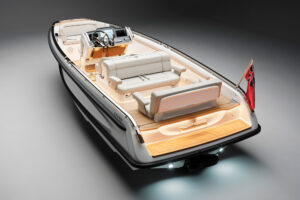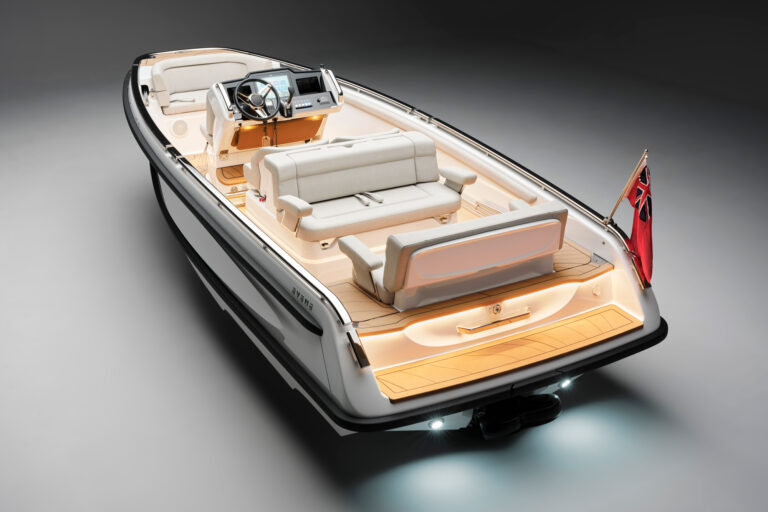
How Yacht Owners and Captains Can Help
Every yacht owner has the same driving desire after a vessel-wrecking disaster like a hurricane: getting their beloved boat up and running ASAP, and getting back on the water. But if Mother Nature has battered your boat, how quickly you return to the water depends on how smoothly the claims process goes with your insurance provider. “We really do want to get the money into your hands as soon as possible,” says Scott Croft, BoatU.S. vice president of public affairs. “I mean in weeks, not months, after the event. After Irma, we had the first checks going out after three days, and in some cases it’s even more important than just getting a boat fixed — we’ve had people whose houses were wiped out, and they survived on their boat insurance until their homeowner policy could come through.
Assuming you’re not in such a tight spot, though, it’s important to wait for the insurance wheels to turn before repairing your boat. In fact, jumping the gun on repairs can be a detriment.
“Sometimes people will wait to call their insurance carrier and will try to repair the boat on their own,” says Todd Shasha, managing director of personal insurance, boat and yacht, for Travelers. “It’s best if we see the damage before the repair takes place. Think about it: No one would hit a deer with a car, repair it and then call their insurance company. Don’t do that with your vessel either.”
PRO TIP: Ask your charter-yacht broker how you can donate supplies to hard-hit islands while you are vacationing in the Caribbean this winter.
Some boaters also do things prior to an event that can delay the process after disaster strikes. Rick Wilson, BoatU.S. vice president of claims, explains that paperwork glitches are some of the biggest enemies of speedy settlements.

“Often, an insurance policy has slightly different names on it than the boat’s documentation,” he says. “One may list a husband and wife, but only one person’s name appears on the other. Or sometimes we see boats in a corporate name, but the insurance is in a personal name. When documents don’t match, it creates more hoops for us to jump through, and it slows the process.”
Another problem insurers commonly see is a delay in initial reporting.
“Our Catastrophe Field Team is deployed the moment they can safely get into a hard-hit area,” Croft says. “We may walk right past a boat and not know it’s one of ours until a month later when someone calls us, long after the team has left town.”
Shasha has seen the exact same issue: “If a loss occurs, and you think you might have a claim, call it in right away. Even if you aren’t sure if you have a claim, one of our boat insurance experts will be able to assist. But the first step should always be to call one of our claim representatives.”
Fortunately, modern technology can help in this regard. While many yachtsmen, especially hurricane evacuees, won’t know how their boat fared at first, some owners found they could check on their boats via satellite images just days after Irma hit.
“We actually had people sending us screenshots from their computers,” Wilson says, “after they found satellite views of damaged areas that showed their boat.”
Expediting the Insurance Process
1. Review your paperwork ahead of time and make sure the insurance you have meets your needs. And do not store that paperwork on your boat. More than one insurance policy has gone down with its ship.
2. Contact your insurer soon after an event. Many insurers have apps and/or websites that allow you to file a claim quickly, sometimes even faster than you can with a phone call.
3. Photograph your boat prior to an event, and then document any damage with more photographs so you can establish what was on the vessel prior to the damage. Make sure to get pictures of accessory equipment, valuables and personal effects that are stowed aboard.
4. When it’s possible (and safe to do so), try to prevent further loss. Covering a smashed windshield with a tarp, for example, might stop additional water damage inside the boat. Many policies include clauses specifying that you’ll be reimbursed for the expenses of taking such measures.
5. Maintain a good relationship with a yard in your area. It can get busy — very busy — after a major event like a hurricane, and established customers usually move to the head of the line.
6. Be familiar with coverage for navigational territory and layup periods. Different insurance carriers handle these issues in varying manners, so it’s important to understand your specific situation prior to any events.









